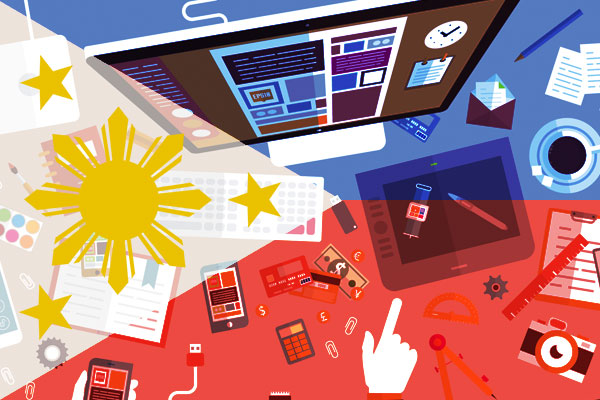PERSPECTIVE
The information age characterised by knowledge revolution and an excessive usage of digital gadgets impacts the manner in which life is negotiated and issues are interpreted. Despite its democratising features, the obsession with technology has resulted in cultural crisis.
Chandrayee Goswami | The New Leam [supsystic-social-sharing id=’5′]

Manual Castells, a prominent sociologist, in his book “The Rise of the Network Society” argues that we live in an information age .By this he meant that unlike industrial age which was centred around the production and distribution of material goods due to technology like the steam engine, the present society is marked by rise of networks facilitated by the explosion of information technology.
[irp]
In this regard, the advent of internet becomes crucial as it brought revolution to the entire communication and information technology and spearheaded the process of digitalising the virtual world. To an extent it has restructured the relationship between the producer, receiver and the content.
If we look at some of the conventional forms of media such as newspaper, television or radio, there is a definite structure of the relationship between these three tiers of communication such as the editor/director/radio jockey, the text/content and the readers/viewers/listeners. But the new media of the internet age has blurred these exact interconnections and curved a nuanced space as new modes of communication and media. Social networking sites exemplify this aspect of media which has grabbed the public conscience in a tremendous way.
Its affect is such that it has become an indispensable part of our lives. Facebook, Whatsapp, Twiter,Instagram have become household names popular among all sections and diverse age groups. One of the reasons for such popularity is definitely its feature of instant connectivity. But another factor which is equally significant is its accessibility which has been achieved by the availability of cell phones. It is not very strange to see that in countries like India where there is wide disparity in terms of living conditions of people; mobile phones have transcended these gaps to be equally available to everyone due to cheaper rates. Robin Jeffery and Doron argue that the cheap mass mobile phone provided that material basis ,a device by which vast numbers of people acquire the capacity to be a part of this network society.
The changes brought by cell phones can be understood through three aspects- Connecting and consuming. Unlike the earlier times, whereby information and intelligence were carefully collected and guarded by those who had access to it ,mobile phones on other hand made everyone a potential publicists because first it was available to a larger mass and second due to the ability to route radio frequency through a small , personal cheap device to receive and transmit messages.
It was these consumers who lent support to the claim that mobile phones promoted a little more equality between the powerful and the vulnerable because a majority of Indians acquired independent access to information and an ability to communicate that was highly valued and previously unimaginable. It thus, became not a luxury but a necessity for many people.
Once the mobile phone reached the masses, they became consumers which occupy the third part of the canvas that was connecting in a multitude ways. Mobile phones were used for business and politics as well as in households and families, by farmers, and even to commit crimes. But the phone was not only a tool. Its effects depended on the knowledge and resources of the people using it. Hence, practices enabled by the mobile phone were new and enabling as well as disruptive.
Therefore, it is certainly true that internet and the availability of cell phones have democratised information but it is also cannot be denied that there have been increasing crimes and harassment related to the cyber space.
These kinds of crimes need not be direct and visible. The worst part is that many times they are not even known or detectable. With the internet and the social networking sites, it is not very clear who actually produces the disturbing and offended content susceptible to be turned into a criminal activity.
The article 66A of the IT Act which allowed punishment for sending offensive messages through communication service was one of the means which was seen to provide protection from cyber crimes. However, it was scrapped by the Supreme Court given the misuse of the act by the authorities to harass innocent people infringing their right to freedom of speech.
In this context, the gamut of virtual space becomes completely a new domain which requires new rules and regulations as well as a nuanced approach. The neoliberal economy compounded by the network society has given the space for the growth of the virtual world whereby reality is alluded to achieve something that is not real, the self has been undermined for the sake of the perfect social media profile and the affective relationships are overlooked to create strong bonds with the online, unseen and unknown community.
For a moment it seems that we are living a false life which is fake, superficial and fleeting. But the virtual is the new reality with all its pros and cons and there is no escape from it. What is important to realise that there is a world that exists parallel to the virtual world where we live with a wide network of people, things, ideas and the socio-economic, political underpinnings shaping our existence in real time and space. Once we recognise it, we will perhaps regain the self confidence of being part of the mankind and not cowed down by any troll army, offensive comments on Facebook or YouTube or completely rely on what is being forwarded in Whatsapp without properly enquiring about it.
***
RELATED SUBJECT















